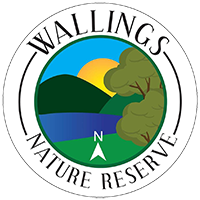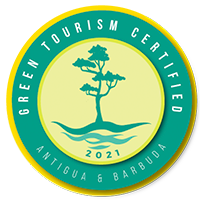The Nagoya Protocol: What is it? What does it mean to you? Can I be part of it?
by Helena Jeffery Brown, Technical Coordinator, Department of Environment
The Nagoya Protocol
The Nagoya Protocol on Access and Benefit-sharing (ABS), which we affectionately call the ABS or Nagoya Protocol is one of the three protocols that exists within the UN Convention of Biological Diversity. The ABS Protocol actually details or “fleshes out” the third objective of the Convention which looks at “fair and equitable sharing of the benefits arising out of the utilization of genetic resources” (www.cbd.int)
Ok, so what is the Nagoya or ABS Protocol? – It is an international agreement which aims at sharing the benefits arising from the utilization of genetic resources in a fair and equitable manner (www.cbd.int/abs/). But what does this mean? First of all, genetic resources are biological materials which contain genes (www.biodiversity.fi/geneticresources) and examples would include seeds, leaves, eggs, hair, roots etc. But what does it mean by saying the sharing of benefits arising from using leaves? I am sure you may know already but pharmaceuticals and cosmetics can be made from the previously mentioned genetic materials. Unfortunately, sometimes unscrupulous folks, occasionally posing as researchers, come to our countries and take our genetic resources (leaves, seeds, eggs etc) hoping to make to make chemical or biological discoveries from which great wealth and knowledge may be achieved. These folks and the companies in turn earn profit without acknowledging, and more importantly, equitably sharing it with the peoples of the country from which those leaves or seeds or eggs (genetic resources) came from. Therefore, the whole point of this protocol is to protect our interests as a country. It allows us to enter into legally binding agreements with researchers so that should they make any discoveries using our genetic resources, the benefits (wealth) are to be shared with us.
Antigua and Barbuda ratified the Nagoya (ABS) Protocol in 2016, this means we have joined with other countries in the world to actively protect our genetic resources. The more countries involved the more likely we are successful as a globe in ensuring that benefits are shared equitably. Did you know that in the Caribbean region, only 5 countries have ratified this Protocol? These countries are Antigua and Barbuda, Cuba, Dominican Republic, Guyana, and St. Kitts and Nevis. We are actively working with our neighbors to encourage them to be part of the process.
The Department of Environment is the focal point of the Nagoya (ABS) Protocol and has drafted many legally binding ABS agreements with researchers to ensure the protection of our genetic resources and associated traditional knowledge. The agreements clearly outline the quantity of resources to be collected, how they are to be used and how they are to be disposed of at the end of the process. The Department also issues permits at the beginning of the process giving the researchers permission to collect samples. So far, we have benefitted mainly by gaining access to information about our local genetic resources which is shared in schools and public lectures and has become part of our databases used in planning for conservation and sustainable use of biodiversity. It is envisioned that in the future, we may be able to have local residents trained in certain field work and data collection activities, perhaps even gaining access to University courses that will allow us to gain more knowledge about our genetic resources.
I need to tell you something else and this is very important, the Nagoya (ABS) Protocol not only protects our interests with respect to the leaves, seeds, eggs etc (genetic resources) but also protects the traditional knowledge associated with their use. For example, a leaf of a particular plant may be used to lessen the pain on a fresh cut but traditional knowledge would tell you how to use the leaf. For example, you may have to break the leaf then place it on the cut. Therefore, any traditional knowledge obtained by researchers is clearly documented in the agreement along with its use, this process provides some legal protection of the use of it.
So, what does the Nagoya (ABS) Protocol mean to you? It means that our genetic resources and the traditional knowledge associated with it are protected from unscrupulous fortune hunters who have no interest in sharing their wealth or knowledge with the country from which the genetic resources came from. Traditional knowledge that exists in certain villages of Antigua and Barbuda was honed over decades and maybe even centuries by our ancestors tolling and figuring out what works and what doesn’t. We need to honor the work of our ancestors and ensure that the traditional knowledge they have shared so readily with us is protected for future generations.
Now, how can you help? We need everyone to participate. If you see someone taking leaves, seeds, eggs, etc with the intention of taking them out of the country, ask them if they have a permit issued by the Department of Environment or simply call us at the Department of Environment and alert us. You may contact the Department at 268-462-4625 or doe@ab.gov.ag. Together we can protect our resources.


